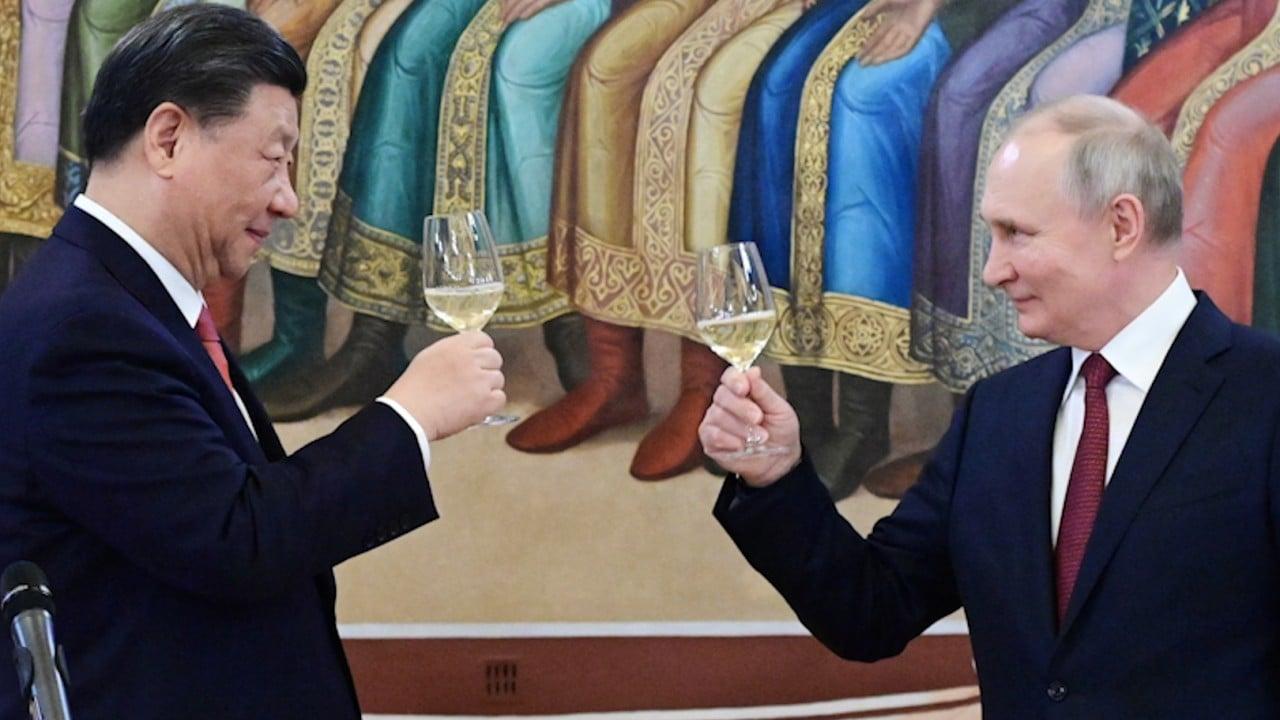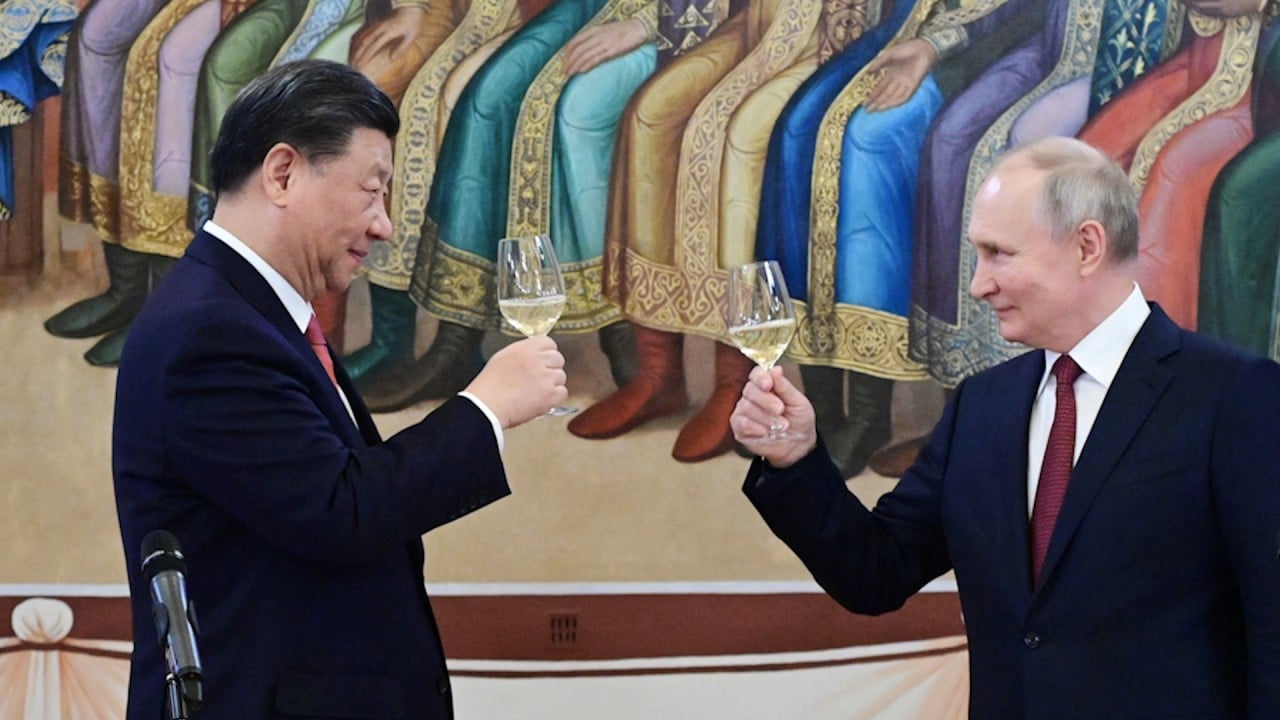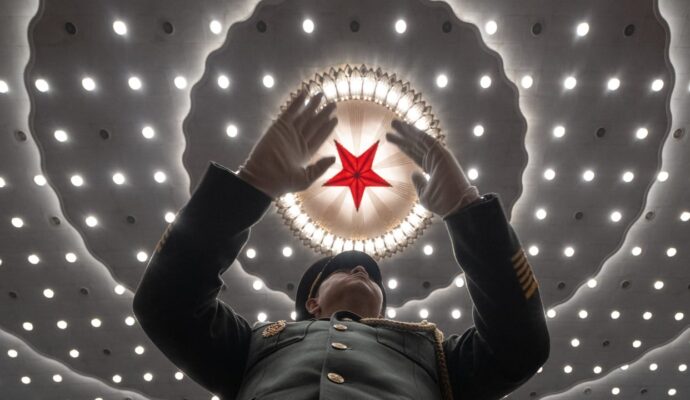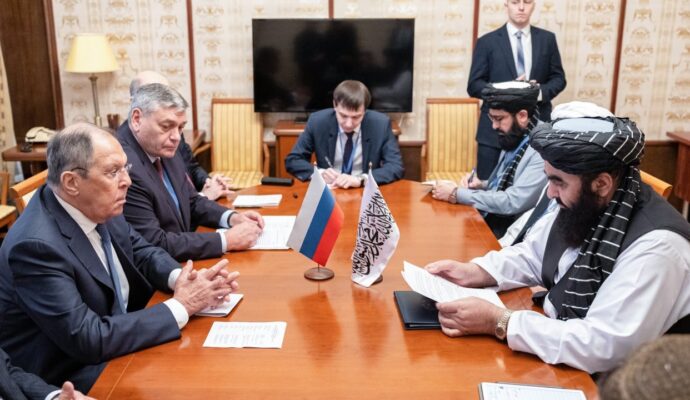
In the nearly hour-long phone call, Xi told Zelensky that “talks and negotiation” were the “only way out” of the war.
Kirby said that whether the call would “lead to some sort of meaningful peace movement or plan or proposal, I just don’t think we know that right now.
“We have long said we want this war to end. It could end immediately if [Russian President Vladimir] Putin would leave. That doesn’t appear to be in the offing.”
Kirby added: “We certainly would welcome any effort to arrive at a just peace as long as that peace could be, as I said, just, could be sustainable and could be credible.
“It’s not going to be sustainable or credible unless the Ukrainians and President Zelensky personally is invested in it.”
China has faced mounting criticism from Washington and other Western countries over its refusal to condemn Russia’s invasion, now entering its 15th month, and Beijing’s close economic ties with Moscow. Calls from these countries to further tighten sanctions against Moscow had also been gaining momentum.
Xi has had multiple calls with Putin since the invasion and even met the Russian leader face-to-face in Moscow in March.
In Europe, some leaders have staked political capital on engaging China in peace efforts in Ukraine, and controversial comments by a Chinese diplomat last week rattled confidence in that approach.
Speaking on French television, Lu Shaye, the Chinese ambassador to France, questioned the sovereignty of post-Soviet states – three of which, Estonia, Latvia and Lithuania, are members of the European Union, while Ukraine is another.
The furore created by Lu’s comments may have been the trigger for the Xi-Zelensky call to take place, two officials speaking on the condition of anonymity suggested.
“I know I can count on you to bring Russia to its senses, and bring everyone back to the negotiating table,” French President Emmanuel Macron told Xi during a state visit to Beijing this month.
Political figures close to Macron said that the call showed he had been right to seek China’s assistance.
“A first step towards peace, under the conditions desired by Ukraine,” tweeted Pieyre-Alexandre Anglade, chairman of the French Parliament’s European Affairs Committee and a member of Macron’s Renaissance party.
“To those who doubted it: moving [Macron] to China was useful in asserting the voice of France and the strategic autonomy of Europe.”
Benjamin Haddad, another Renaissance lawmaker, also linked the call to Macron’s trip.
In the call to Zelensky, Xi noted that “one of the objectives of Macron’s visit to Beijing was to push China to play a more constructive role in the conflict”.
Finnish President Sauli Niinistö tweeted simply: “Good news.”
French President Emmanuel Macron and Chinese President Xi Jinping in Beijing on April 6. Photo: AFP via Getty Images/TNS
Another senior EU official, speaking on condition of anonymity, said the EU “has always encouraged China, a permanent member of the UN Security Council, to share the global responsibility to defend and uphold the UN charter and the principles of international law”.
“We take note of China’s intention to send a special envoy to Ukraine (and other countries) – also to stress the above message; we look forward to more details on this initiative,” this official added.
Rorry Daniels, managing director of the Asia Society Policy Institute, said the call showed that China was attempting a delicate balancing act in managing its relations with Russia, the EU and the US.
The phone conversation, she said “seems to have laid a foundation for more regular contact between officials from China and Ukraine”.
“China wants to show Europe that it can play a more constructive role on issues that matter most to Europeans,” Daniels added. “At the same time, China wants to manage expectations that it is ready, willing and able to mediate a dialogue process.”
Additional reporting by Mark Magnier


